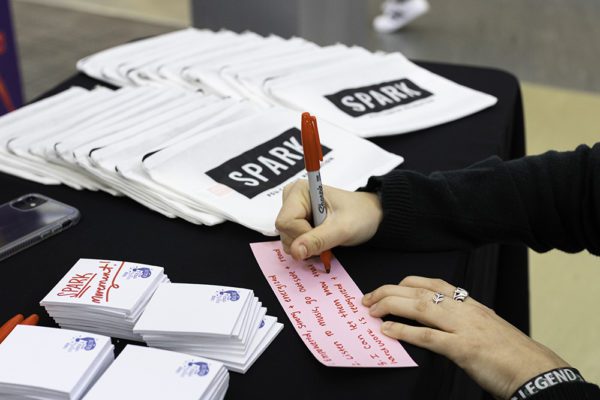
Florida State University (FSU) recently launched a holistic wellness campaign called SPARK that focuses on physical and mental health through exercise.
The role of Campus Recreation in the campaign includes sharing factual information based off the book, “Spark: The Revolutionary New Science of Exercise and the Brain,” by John Ratey, and hosting events around campus and in the recreation facilities.
“Holistically, we’re trying to address the issues of loneliness, a lack of community, stress and anxiety, and we’re trying to really create a healthy student,” said Kate Blosser, the assistant director of marketing and special events for Campus Recreation at FSU.
Simply stated, SPARK is aimed to support and help the entire student body with information that is understandable, informative and encouraging. In achieving this, Blosser elaborated the difficulty her team has encountered in trying to reach and create programming for the Gen Z students. One of these programs is crate stacking, which has a goal of reaching those students not currently present in the recreation facilities.
“We’re trying to figure out how we can offer things of value, and we took it really literally with the SPARK campaign,” she said. “A lot of times students don’t want nuance. They want to know what they’re doing is going to benefit them, so we stripped away all of the fancy wording and say, ‘exercise is going to make you feel better.’”
SPARK shares that regular exercise helps you:
- Be more social
- Calm down
- Fight depression
- Sleep better
- Improve focus
- Make better decisions
- Live longer
Along with providing the facts for the campaign, Campus Recreation will also host events and programs with a variety of activities around campus to appeal to the entire student body. These programs include yard games, fitness demos, low-entry sports activities, and field-day events with low commitment and low intimidation.
“For a long time, we’ve tried to figure out how to help our friends in counseling who are running out of space because students need these services, and we realized recreation can be a help to some of those things,” said Blosser. “We wanted to do a better job of talking about how recreation can be part of that wellness routine.”










